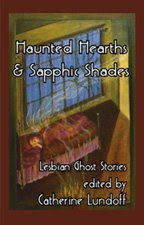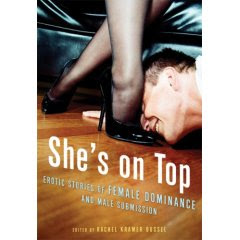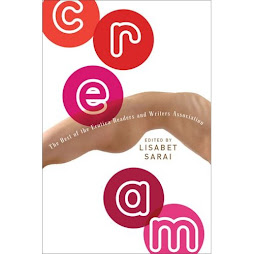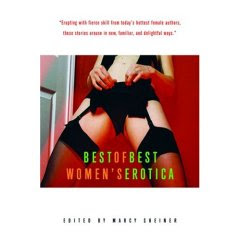Monday, April 30, 2007
Sunday, April 29, 2007
On Being an Erotica Writer
Even though it's almost two weeks away, mentally, I'm already in New
Orleans for the Saints and Sinners Literary Festival. The anticipation
is terrible and wonderful at the same time. A lot of writers I know are
heading there for the first time, so I'm fielding a lot of questions
about it. I've been to a lot of writer's conferences, but Saints and
Sinners stands out as the must-attend conference for me because it's the only one I've ever been to where I feel comfortable. There's no awkward pause before I talk about what I write.
I'm not ashamed that I write erotica. It's just that it seems to make other
people feel uncomfortable. It was drummed into my head from an early
age that I was responsible for the emotions of people around me (not a healthy POV, but hard to overcome) so I'm always hyper-sensitive to body language.
When I see a negative shift, the peacemaker in me comes out. That isn't
really fair though. I should trust people to face their own prejudices.
Besides, some people need that jolt of reality. (I've often said that
at writer's conferences, admitting to writing science fiction gets the same horrified look that erotica gets. The difference is that when I say science fiction, those people don't move to another table.)
Despite the horrified glances I get at writer's conferences, I'm frequently pulled aside to listen to hastily whispered confessions or to answer breathless
questions. At the heart of both is the query, "Am I normal?" and "Is
this okay?" I might not be a sex educator, but I want to offer
reassurance. People shouldn't have to fret so much about sex.
The stigma of being an erotica writer isn't what it used to be. Few agents
will touch it, but as the bigger publishing houses move into the niche
they will. Where there's money, there's someone with his/her hand out
for a cut of the action. Time is running out though, because most of us
have done without agents, or been rudely dismissed ("I don't handle that sort of thing," said with a distinct sniff of disdain.), for so long that we've learned to do without. It's up to the agents to prove their worth to us at this point. However, the first one to wake up and smell the $$ is going to have his/her pick of clients.
On her blog, Remittance Girl wrote a wonderful piece about the questions erotica writers are asked that no other genre seems to face. No one seems to ask romance writers just how many Counts and Dukes they've fallen in love with and married. No one asks a mystery writer how many murders they've committed. And yet, asking an erotica writer if she/he has ever committed that sexual act doesn't seem beyond the pale. Maybe it's because we write about the forbidden that people assume we're game for anything.
I guess I'm lucky that I've never been asked the, "Did you actually do that?"
question. Maybe my stories are too firmly footed in the world of the
fantastic to strike people as a true confession. I have, however, been
mailed a few cock pictures under both my male pen name and my female
pen name. (P.S. Note to would-be suitors - neither Jay nor Kathleen is
currently auditioning new lovers. So save those cock pix for your
Manhunt profile.) (P.P.S. your couch is hideous.)
Orleans for the Saints and Sinners Literary Festival. The anticipation
is terrible and wonderful at the same time. A lot of writers I know are
heading there for the first time, so I'm fielding a lot of questions
about it. I've been to a lot of writer's conferences, but Saints and
Sinners stands out as the must-attend conference for me because it's the only one I've ever been to where I feel comfortable. There's no awkward pause before I talk about what I write.
I'm not ashamed that I write erotica. It's just that it seems to make other
people feel uncomfortable. It was drummed into my head from an early
age that I was responsible for the emotions of people around me (not a healthy POV, but hard to overcome) so I'm always hyper-sensitive to body language.
When I see a negative shift, the peacemaker in me comes out. That isn't
really fair though. I should trust people to face their own prejudices.
Besides, some people need that jolt of reality. (I've often said that
at writer's conferences, admitting to writing science fiction gets the same horrified look that erotica gets. The difference is that when I say science fiction, those people don't move to another table.)
Despite the horrified glances I get at writer's conferences, I'm frequently pulled aside to listen to hastily whispered confessions or to answer breathless
questions. At the heart of both is the query, "Am I normal?" and "Is
this okay?" I might not be a sex educator, but I want to offer
reassurance. People shouldn't have to fret so much about sex.
The stigma of being an erotica writer isn't what it used to be. Few agents
will touch it, but as the bigger publishing houses move into the niche
they will. Where there's money, there's someone with his/her hand out
for a cut of the action. Time is running out though, because most of us
have done without agents, or been rudely dismissed ("I don't handle that sort of thing," said with a distinct sniff of disdain.), for so long that we've learned to do without. It's up to the agents to prove their worth to us at this point. However, the first one to wake up and smell the $$ is going to have his/her pick of clients.
On her blog, Remittance Girl wrote a wonderful piece about the questions erotica writers are asked that no other genre seems to face. No one seems to ask romance writers just how many Counts and Dukes they've fallen in love with and married. No one asks a mystery writer how many murders they've committed. And yet, asking an erotica writer if she/he has ever committed that sexual act doesn't seem beyond the pale. Maybe it's because we write about the forbidden that people assume we're game for anything.
I guess I'm lucky that I've never been asked the, "Did you actually do that?"
question. Maybe my stories are too firmly footed in the world of the
fantastic to strike people as a true confession. I have, however, been
mailed a few cock pictures under both my male pen name and my female
pen name. (P.S. Note to would-be suitors - neither Jay nor Kathleen is
currently auditioning new lovers. So save those cock pix for your
Manhunt profile.) (P.P.S. your couch is hideous.)
Sunday, April 22, 2007
What Are We Allowed to Write?
There was a recent discussion on ERWA about words we use to describe skin colors, and if it was demeaning to use food names to describe skin tone. Interesting discussion. It evolved into an outpouring of our doubts as writers about portraying people of different cultures than our own. At the heart of that is a fear of inadvertently supporting stereotypes and offending someone.
While I can completely understand those fears, and have them myself, I worry about self-censorship and the paralysis of political correctness. If you write erotica, you're already offending someone's delicate sensibilities. It's easy to dismiss the protests of those who hate or fear frank discussions of sex, but not so easy to feel the same way about people who might be offended by our portrayal of a different culture. Why? Probably because we want to show respect for other cultures and are mortified when someone accuses us of getting it terribly wrong, but we delight in tweaking the noses of prudes.
This comes down to a question of what we're allowed to write. Back in the 1970's and early 1980's (and less so now, but I'm sure there are whole college courses dedicated to this), debates raged about the right of whites to portray people of color. At the heart of that was the idea that black, brown, and other voices were being silenced by white writers, and that white writers were unable to accurately portray other cultures. Those are separate arguments. On one hand, those arguments gave rise to cultural studies and made the publishing world more accessible to non-white writers, thus making voices heard that otherwise wouldn't have been. That needed to happen. On the other hand, it's an unfair and sweeping assessment of intent, ability, imagination, and skill of white writers. And while those debates did result in other voices being heard, it also made characters of color all but disappear from the mainstream literature of the day.
There's a vast difference between what I call "chomba-chomba" cultural writing (taken from the big production number at the end of Moulin Rouge in which the cast sings nonsense words and wears exotic but probably non-authentic costumes meant to evoke India) and informed writing. Chomba-chomba is when someone slaps an exotic facade over their story and presents it as being about another culture. Like all facades though, it lacks depth, and isn't constructed with much care. The Mikado, Madame Butterfly, and almost every Western filmed by Hollywood that portrayed indigenous cultures are chomba-chomba stories. Any writer who does that deserves the wrath of the culture they insult through ignorance.
But what about the ones who get it right? Male writers write female characters. Female writers write men. Alice Walker writes white characters. Greg Herren (and almost every other queer writer I know) writes straight characters. Should they be barred from crossing those lines simply because they aren't what they write? The example writers always hold up is that no one believes that Agatha Christie ever murdered anyone, and yet all she wrote was murder mysteries. So why should straight men be barred from writing lesbian fiction? But the mere suggestion of that can set off a flurry of angry diatribes.
Last year, I was at a party where I was getting along really well with this guy I'd just met. He was intrigued that I wrote erotica, and asked a lot of questions. The conversation was flowing along nicely, with a lot of laughter and good quips, when I mentioned a gay erotic story I'd written that got the best reviews I've ever had. He was incredibly offended. How dare I, a woman, write gay erotica! The rant went on until I said something to the effect of, "I wasn't asking for your permission," and walked away.
So where do we get permission to write outside our personal point of view? If you're a writer, don't hold your breath waiting for the engraved invitation. No one is going to say, "You've finally proven your sensitivity and understanding, now you may write a character from our culture." Write what you want to, write what you feel. Go for it. Sure, someone might be offended, but you truly can't please everyone, so don't even try. Fear has no place in writing. So just write your story. Go on. You have my permission.
While I can completely understand those fears, and have them myself, I worry about self-censorship and the paralysis of political correctness. If you write erotica, you're already offending someone's delicate sensibilities. It's easy to dismiss the protests of those who hate or fear frank discussions of sex, but not so easy to feel the same way about people who might be offended by our portrayal of a different culture. Why? Probably because we want to show respect for other cultures and are mortified when someone accuses us of getting it terribly wrong, but we delight in tweaking the noses of prudes.
This comes down to a question of what we're allowed to write. Back in the 1970's and early 1980's (and less so now, but I'm sure there are whole college courses dedicated to this), debates raged about the right of whites to portray people of color. At the heart of that was the idea that black, brown, and other voices were being silenced by white writers, and that white writers were unable to accurately portray other cultures. Those are separate arguments. On one hand, those arguments gave rise to cultural studies and made the publishing world more accessible to non-white writers, thus making voices heard that otherwise wouldn't have been. That needed to happen. On the other hand, it's an unfair and sweeping assessment of intent, ability, imagination, and skill of white writers. And while those debates did result in other voices being heard, it also made characters of color all but disappear from the mainstream literature of the day.
There's a vast difference between what I call "chomba-chomba" cultural writing (taken from the big production number at the end of Moulin Rouge in which the cast sings nonsense words and wears exotic but probably non-authentic costumes meant to evoke India) and informed writing. Chomba-chomba is when someone slaps an exotic facade over their story and presents it as being about another culture. Like all facades though, it lacks depth, and isn't constructed with much care. The Mikado, Madame Butterfly, and almost every Western filmed by Hollywood that portrayed indigenous cultures are chomba-chomba stories. Any writer who does that deserves the wrath of the culture they insult through ignorance.
But what about the ones who get it right? Male writers write female characters. Female writers write men. Alice Walker writes white characters. Greg Herren (and almost every other queer writer I know) writes straight characters. Should they be barred from crossing those lines simply because they aren't what they write? The example writers always hold up is that no one believes that Agatha Christie ever murdered anyone, and yet all she wrote was murder mysteries. So why should straight men be barred from writing lesbian fiction? But the mere suggestion of that can set off a flurry of angry diatribes.
Last year, I was at a party where I was getting along really well with this guy I'd just met. He was intrigued that I wrote erotica, and asked a lot of questions. The conversation was flowing along nicely, with a lot of laughter and good quips, when I mentioned a gay erotic story I'd written that got the best reviews I've ever had. He was incredibly offended. How dare I, a woman, write gay erotica! The rant went on until I said something to the effect of, "I wasn't asking for your permission," and walked away.
So where do we get permission to write outside our personal point of view? If you're a writer, don't hold your breath waiting for the engraved invitation. No one is going to say, "You've finally proven your sensitivity and understanding, now you may write a character from our culture." Write what you want to, write what you feel. Go for it. Sure, someone might be offended, but you truly can't please everyone, so don't even try. Fear has no place in writing. So just write your story. Go on. You have my permission.
Tuesday, April 17, 2007
Erotica Revealed
I'm mentioned it a few times, but fellow writer, kinkster, and dear friend DL King is starting a new erotica review site, and I'm very pleased to be one of her reviewers. The site isn't up yet, but we're e-mailing like mad behind the scenes hammering out the details (oh - so many details!) so that there's a consistent house style to the reviews.
Erotica doesn't get much respect. It's hard to get a review that approaches it as literature. There are a few sites out there that do a good job now. We want to add to those options.
Before, I've reviewed as the mood hit me, but we're trying to update monthly, so now I've got to be more consistent. Alas poor me - I have to set aside time to read more erotica. ;)
Erotica doesn't get much respect. It's hard to get a review that approaches it as literature. There are a few sites out there that do a good job now. We want to add to those options.
Before, I've reviewed as the mood hit me, but we're trying to update monthly, so now I've got to be more consistent. Alas poor me - I have to set aside time to read more erotica. ;)
Monday, April 16, 2007
Where To Begin
I finally decided that fate was fate and I might as well start working on my next novel instead of hoping a short story suggested itself. I had two choices - the speculative fiction or the sand-humping beach read. While I have a good idea of the major themes of the speculative fiction story -based on Hobb's theories on the role of the commonwealth and the motivations of the individual within a polis; and on the isolating influences of technology and how that affects communication - so obviously it's going to be a light comedy.
Where was I? Oh yeah. While I know the themes my speculative fiction will touch on, I don't quite have the nitty-gritty details of the story worked out. I've known the plot of the sand-humping beach read for almost a year, so I went with that instead.
No matter how well I know the story I'm telling, I'm still stuck with the problem of where to begin. The opening is one of the hardest parts of a novel. If I take a long running start at a story, I lose the reader. So I have to jump into the middle of action. But what action?
On the writer's lists I belong to, about twice a year we discuss great opening lines of novels. "The world is full of happy widows" from Love in the Time of Cholera is my favorite opening line. ("It's lovely to think so, isn't it?" from the Sun Also Rises is my favorite closing line.) A good opening line is important , but it can't survive on it's own. You can't count on "It was the best of times, it was the worst of times," to carry an entire novel.
People can debate this - but I think the elements of a great first chapter are:
A example of the major conflict that will drive the story.
Actions and dialog that reveal the main character's defining traits.
A touch of mystery.
The opening chapter I envisioned didn't fit that criteria, which is partially why I avoided working on this novel. (the rest of the reason was pure obstinacy) I was mulling scenes, tumbling them around in my mind as I tried to figure out the exact sequence they belonged in, and somewhere in that mess I saw pieces that fit together in new ways to create a much stronger chapter one. It has all the elements I'm looking for. It begins in the middle of action, but not just any action. The conflict in the scene reveals Sam's major character flaw (in case the reader hasn't read Chaos Magic and doesn't already know Sam inside and out.), and sets up further conflict throughout the story. There's a little bit of mystery - what is that secret Sam almost let slip? And, of course, it leads up to a really hot sex scene. A beginning doesn't get much better than that.
Where was I? Oh yeah. While I know the themes my speculative fiction will touch on, I don't quite have the nitty-gritty details of the story worked out. I've known the plot of the sand-humping beach read for almost a year, so I went with that instead.
No matter how well I know the story I'm telling, I'm still stuck with the problem of where to begin. The opening is one of the hardest parts of a novel. If I take a long running start at a story, I lose the reader. So I have to jump into the middle of action. But what action?
On the writer's lists I belong to, about twice a year we discuss great opening lines of novels. "The world is full of happy widows" from Love in the Time of Cholera is my favorite opening line. ("It's lovely to think so, isn't it?" from the Sun Also Rises is my favorite closing line.) A good opening line is important , but it can't survive on it's own. You can't count on "It was the best of times, it was the worst of times," to carry an entire novel.
People can debate this - but I think the elements of a great first chapter are:
A example of the major conflict that will drive the story.
Actions and dialog that reveal the main character's defining traits.
A touch of mystery.
The opening chapter I envisioned didn't fit that criteria, which is partially why I avoided working on this novel. (the rest of the reason was pure obstinacy) I was mulling scenes, tumbling them around in my mind as I tried to figure out the exact sequence they belonged in, and somewhere in that mess I saw pieces that fit together in new ways to create a much stronger chapter one. It has all the elements I'm looking for. It begins in the middle of action, but not just any action. The conflict in the scene reveals Sam's major character flaw (in case the reader hasn't read Chaos Magic and doesn't already know Sam inside and out.), and sets up further conflict throughout the story. There's a little bit of mystery - what is that secret Sam almost let slip? And, of course, it leads up to a really hot sex scene. A beginning doesn't get much better than that.
Tuesday, April 10, 2007
Idle Hands
I have a definite creativity cycle. About spring I stop writing and don't truly get back into a creative flow until August. It used to drive me crazy - okay, it still does - but at least I don't panic now when months go by and I've written nothing. By the end of July, I do get a little testy though.
From September to January I worked on a novel and didn't write any short stories. In February I wrote a short story that I promised an editor months ago, but other than that I only have the Hot Cops anthology that's due out in May. So I'm looking at this gaping whole in my output and getting a bit nervous. Should I go against my normal pattern and try to write? I'd like to work on some short stories before I plunge back into the huge time suck of a novel, but I have two novels - okay, three - in my head and not a single short story. I tempted to hold off on writing until I can come up with a decent short, but if I'm in the mode where I can write, and I have a novel ready to go, why not write it?
You can see that this is one of those internal debates where I already know the answer, but I don't like it, so I waste time quibbling over non-issues to avoid what's going to happen anyway.
While I play mind games with myself, I'm not sitting around doing nothing. Dear friend, writer, kinkster and fellow porn movie aficionado DL King is creating a website for reviews of literary erotica, so I've been reading and writing reviews that will be exclusive to her site ( you won't see them on this blog, but I will post links when the site is up). I've been networking like mad with writers and editors for all my projects that are coming up. Mindful of how much I owe to the wonderful community of writers at the Erotica Readers and Writer's Association, I've been working on line by line critiques of stories on the Story Time list - which probably strikes fear in the heart of new writers as they see the volume of notes I send them, but I always say that being edited by Marcy Scheiner was the best writing class I ever took, and I try to pass on that personal level of in-depth help to writers with promise. (I'll never forget looking at the edited version of my first sold story, the pages absolutely dripping with red ink, and thinking, "And she liked this? My god. What does she do to a story she hates?" I allowed myself ten Diva melt-down minutes and then decided to learn from it. Looking back, I should have paid her . She changed the way I tell stories - and all for the better.)
These are not simply excuses to avoid working on another novel, but they do help. *sigh* I guess I'm fated. It's going to be another novel. Hmmm. Do I write the next in the series of my sand-humping beach reads, or do I tackle the only-slightly-more-serious near-future speculative fiction (that's science fiction to all you non-geeks)? Wow - figuring this out could take me weeks - but only if I ration out my excuses carefully.
From September to January I worked on a novel and didn't write any short stories. In February I wrote a short story that I promised an editor months ago, but other than that I only have the Hot Cops anthology that's due out in May. So I'm looking at this gaping whole in my output and getting a bit nervous. Should I go against my normal pattern and try to write? I'd like to work on some short stories before I plunge back into the huge time suck of a novel, but I have two novels - okay, three - in my head and not a single short story. I tempted to hold off on writing until I can come up with a decent short, but if I'm in the mode where I can write, and I have a novel ready to go, why not write it?
You can see that this is one of those internal debates where I already know the answer, but I don't like it, so I waste time quibbling over non-issues to avoid what's going to happen anyway.
While I play mind games with myself, I'm not sitting around doing nothing. Dear friend, writer, kinkster and fellow porn movie aficionado DL King is creating a website for reviews of literary erotica, so I've been reading and writing reviews that will be exclusive to her site ( you won't see them on this blog, but I will post links when the site is up). I've been networking like mad with writers and editors for all my projects that are coming up. Mindful of how much I owe to the wonderful community of writers at the Erotica Readers and Writer's Association, I've been working on line by line critiques of stories on the Story Time list - which probably strikes fear in the heart of new writers as they see the volume of notes I send them, but I always say that being edited by Marcy Scheiner was the best writing class I ever took, and I try to pass on that personal level of in-depth help to writers with promise. (I'll never forget looking at the edited version of my first sold story, the pages absolutely dripping with red ink, and thinking, "And she liked this? My god. What does she do to a story she hates?" I allowed myself ten Diva melt-down minutes and then decided to learn from it. Looking back, I should have paid her . She changed the way I tell stories - and all for the better.)
These are not simply excuses to avoid working on another novel, but they do help. *sigh* I guess I'm fated. It's going to be another novel. Hmmm. Do I write the next in the series of my sand-humping beach reads, or do I tackle the only-slightly-more-serious near-future speculative fiction (that's science fiction to all you non-geeks)? Wow - figuring this out could take me weeks - but only if I ration out my excuses carefully.
Friday, April 06, 2007
Review of Nobody Passes
Normally, I plow through books in a matter of hours. I absorb story and language quickly. I've always been that way. When Mom felt the need to impress her fellow PhD candidates, she'd hand me a novel, flip to a random page, put her finger on the stopwatch and shout Go! When I finished the chapter, she'd have someone calculate the number of words, divide it by the time, and then wait for them to be amazed by my words per minute rate. Of course, they felt any trained monkey could scan and flip pages, so then I'd have to tapdance through the grand finale as they questioned me about what I'd read. This led to a short stint as the psychology department's favorite lab rat - the Girl Wonder, a first grader who read at college level. That was back in the days where it was still permissible for the head of the department to pat me on the head and lament to my mother, "Pity she's a girl. Such a waste of intellegence." BTW - the school was Oklahoma State University. The year was 1971. I wish I remembered his name, because I'd print it here. Why protect that misogynistic ass? Even back then, I could have told him that I wasn't really a girl, but at that moment it felt like a matter of principal to pass as one, so I didn't correct him. (Mom, on the other hand, ripped him a new one. Despite their religious conservatism, Mom and Dad have always been ardent feminists.)
In contrast to my usual speed reading style, I've been reading Nobody Passes: Rejecting the Rules of Gender and Conformity, edited by Mattilda, Seal Press, slowly, absorbing each essay, and setting aside time to think about the ideas. This is my highest praise for any book - it makes me think.
Some essays stand out more than others, not because they are better, but because they have deeper personal resonance for me. And Then You Cut Your Hair made me nod a few times, and grin. This essay hit right on the issues of hair-length conformity and gender roles. My hair is long, but I hate the message it seems to send out. The message people should get from my hair is that I can't be bothered to get it cut. Simple as that. It does not define me. My hair is NOT political, damn it, just neglected. Once upon a time, I resorted to cropping it very short to fit better with how I identify, but then I got pissed off that other people got to determine my validity with such a stupid external measure, and then time slipped past, and the next thing I knew, it was past my shoulders again. It's reassuring to know that other people experienced this weird hair/identity/conformity issue, and how the length can make a person visible in one community but invisible in another. The rest of the essay is about race. Being white, I will never have a good point of reference for racial issues from the POV of a person of a different race, but it's interesting reading.
Surface Tensions by Jen Cross is another essay that stays with me. As I mentioned after her reading at Skylight Books, my jaw dropped when she spoke of wanting to cut away the feminine parts of her body. She had different reasons than I did - I was never sexually abused - but I was comforted by the horrible thought being spoken aloud. I'd written about it in a novel I just finished, but was a bit uneasy about how a publisher would react to such a frank admission of body loathing and the desire to self-mutilate - no, not mutilate, reform and rebirth, correct and mold in my own image. There's power in terrible words. If Jen isn't afraid to use them, I shouldn't be either.
Not Quite Queer by Benjamin Shepard asks, "Is it possible to be straight and queer? " Persephone by Helen Boyd asks if it's possible to have an identity that isn't in relation to anohter person's identity, and if it's possible to be queer and still have an heteronormative imprint (she calls it a tattoo) on your life. Both of these address the end of an era that may have never been, that mythological time when queer culture was welcoming and encompassing of everyone who felt like Other. The boundaries feel set now, like fortress walls rather than open arms. As usual, I'm on the outside, wondering if I'll ever feel I belong anywhere, and sort of resigning myself to the idea that I won't. I have a feeling that Benjamin and Helen would empathize.
There are so many excellent essays in this anthology. Dean Spade's Undermining Gender Regulation is an eye-opening reminder of the way the government punishes people for being Other. Passing Last Summer and The End of Genderqueer were worth a second reading. Lack of Close Friends of Confidants by Jennifer Blowdryer was well received at the reading I went to.
Overall, this is a persuasive text for anti-assimilation. Little here would excite the politically connected gay groups. This is not media friendly, photo-op, soundbite life. These are unique voices. A strongly recommended read.
In contrast to my usual speed reading style, I've been reading Nobody Passes: Rejecting the Rules of Gender and Conformity, edited by Mattilda, Seal Press, slowly, absorbing each essay, and setting aside time to think about the ideas. This is my highest praise for any book - it makes me think.
Some essays stand out more than others, not because they are better, but because they have deeper personal resonance for me. And Then You Cut Your Hair made me nod a few times, and grin. This essay hit right on the issues of hair-length conformity and gender roles. My hair is long, but I hate the message it seems to send out. The message people should get from my hair is that I can't be bothered to get it cut. Simple as that. It does not define me. My hair is NOT political, damn it, just neglected. Once upon a time, I resorted to cropping it very short to fit better with how I identify, but then I got pissed off that other people got to determine my validity with such a stupid external measure, and then time slipped past, and the next thing I knew, it was past my shoulders again. It's reassuring to know that other people experienced this weird hair/identity/conformity issue, and how the length can make a person visible in one community but invisible in another. The rest of the essay is about race. Being white, I will never have a good point of reference for racial issues from the POV of a person of a different race, but it's interesting reading.
Surface Tensions by Jen Cross is another essay that stays with me. As I mentioned after her reading at Skylight Books, my jaw dropped when she spoke of wanting to cut away the feminine parts of her body. She had different reasons than I did - I was never sexually abused - but I was comforted by the horrible thought being spoken aloud. I'd written about it in a novel I just finished, but was a bit uneasy about how a publisher would react to such a frank admission of body loathing and the desire to self-mutilate - no, not mutilate, reform and rebirth, correct and mold in my own image. There's power in terrible words. If Jen isn't afraid to use them, I shouldn't be either.
Not Quite Queer by Benjamin Shepard asks, "Is it possible to be straight and queer? " Persephone by Helen Boyd asks if it's possible to have an identity that isn't in relation to anohter person's identity, and if it's possible to be queer and still have an heteronormative imprint (she calls it a tattoo) on your life. Both of these address the end of an era that may have never been, that mythological time when queer culture was welcoming and encompassing of everyone who felt like Other. The boundaries feel set now, like fortress walls rather than open arms. As usual, I'm on the outside, wondering if I'll ever feel I belong anywhere, and sort of resigning myself to the idea that I won't. I have a feeling that Benjamin and Helen would empathize.
There are so many excellent essays in this anthology. Dean Spade's Undermining Gender Regulation is an eye-opening reminder of the way the government punishes people for being Other. Passing Last Summer and The End of Genderqueer were worth a second reading. Lack of Close Friends of Confidants by Jennifer Blowdryer was well received at the reading I went to.
Overall, this is a persuasive text for anti-assimilation. Little here would excite the politically connected gay groups. This is not media friendly, photo-op, soundbite life. These are unique voices. A strongly recommended read.
Wednesday, April 04, 2007
Fantasy
Just got back from Las Vegas. I'm never sure how I feel about that place. (The Strip and the casinos, not the City.) On one hand, it's grotesque in the literary sense in that it evokes divergent emotions, mainly disgust and fascination. On the other hand... nope, grotesque covers it.
We went for the SO's birthday. Other than hitting the new Star Wars slot machine, the thing he most wanted to do was catch a show. As the trip was ALL ABOUT HIM (I had so much fun reminding him of that whenever he asked me what I wanted to do) we decided to head out to a topless review. (It turns out that naked boobies are the perfect gift for the difficult-to-shop-for hetero man. Now I know what to get him next year too.)
The topless review Fantasy is at the Luxor. Unfortunately, it shares theater space with Carrot Top. No matter what you think about his comedy, you have to admit that a ten-foot high close-up of Carrot Top is enough to kill a soft-core porn buzz.
The audience was mixed racially (mostly white), average age about 47, and almost evenly split between men and women - to the obvious consternation of three college boys who were seated between women who could have been mom. The theater is tiered such that there are no bad seats, but the rows are tight, and we had to stand many times as people inched past us to get to their seats further down the row. Because of the layout, there's no drink service during the show, which you might prefer (leaving for the bathroom during the show will make the people on your row hate you).
Every show in Las Vegas gets 5 Star ratings, or is voted the Best of Vegas for some reason or another in the ads, websites, and magazines. Fantasy was no exception. Since you can't trust the ratings, you have to put your faith in the idea that a show wouldn't keep playing if it wasn't decent, but there's a fallacy in that logic. No one else knows either, so everyone gambles and buys a ticket, filling the theaters of both bad and good shows. Some people get lucky and love what they see. The rest of us crap out.
If you go see Fantasy, you will see bare breasts. Most of them even seemed real. If that's enough to keep you happy, then be my guest. However, there are other shows that feature topless dancers that I'd suggest before Fantasy. Having breasts myself, I'm not as enthralled by them as some people. It takes a bit more to keep me entertained. Fantasy didn't have more.
The comedian in the show was a talented dancer, but his routine was so painfully unfunny that I was relieved every time he left the stage.
If I were the director, I'd remind the singer that the microphone amplifies her voice so that she doesn't have to scream to be heard. Maybe that screeching was supposed to convey deep emotion. She did tend to scrunch up her face and look constipated at those moments. Every time she cranked up the volume, the audience flinched.
Almost every show I've seen in Vegas has taken pains to demonstrate that the dancers are real artists who have trained extensively in ballet and jazz. Fantasy didn't. It was number after number of unimaginative strip scenes that didn't come close to showing off the dancing talent on that stage, which was a pity. There was no variety. Every number looked like it was cribbed from a Janet Jackson video. Someone should tell the choreographer that a dancer constantly tossing her hair to a soundtrack of a women faking an orgasm may be sexy once, but after an hour, it gets old. So did the faked lesbian caresses and slaps on the butt, but I'll accept that as fanserve for middle age, middle class males who still think lesbian = two girls playing around while they wait for a man to join them.
If you go to Vegas, I can suggest two other shows that I'd see before Fantasy. If it's still playing, Crazy Girls is very good. The theater is old and kind of creepy, but the dancers are wonderful, and they get a chance to show off their skills in a variety of numbers. The poles that they dance on are out in the audience, so you get to see the dancers very close. Plus - their "lesbian fantasy for guys" dance number was hot. The other show I'd strongly suggest is Fashionistas. I reviewed it last year after I went, and my opinion of it still stands. Kick ass music, hot dancing, endless variety of scenes, and enough kink to keep my on the edge of my seat.
We went for the SO's birthday. Other than hitting the new Star Wars slot machine, the thing he most wanted to do was catch a show. As the trip was ALL ABOUT HIM (I had so much fun reminding him of that whenever he asked me what I wanted to do) we decided to head out to a topless review. (It turns out that naked boobies are the perfect gift for the difficult-to-shop-for hetero man. Now I know what to get him next year too.)
The topless review Fantasy is at the Luxor. Unfortunately, it shares theater space with Carrot Top. No matter what you think about his comedy, you have to admit that a ten-foot high close-up of Carrot Top is enough to kill a soft-core porn buzz.
The audience was mixed racially (mostly white), average age about 47, and almost evenly split between men and women - to the obvious consternation of three college boys who were seated between women who could have been mom. The theater is tiered such that there are no bad seats, but the rows are tight, and we had to stand many times as people inched past us to get to their seats further down the row. Because of the layout, there's no drink service during the show, which you might prefer (leaving for the bathroom during the show will make the people on your row hate you).
Every show in Las Vegas gets 5 Star ratings, or is voted the Best of Vegas for some reason or another in the ads, websites, and magazines. Fantasy was no exception. Since you can't trust the ratings, you have to put your faith in the idea that a show wouldn't keep playing if it wasn't decent, but there's a fallacy in that logic. No one else knows either, so everyone gambles and buys a ticket, filling the theaters of both bad and good shows. Some people get lucky and love what they see. The rest of us crap out.
If you go see Fantasy, you will see bare breasts. Most of them even seemed real. If that's enough to keep you happy, then be my guest. However, there are other shows that feature topless dancers that I'd suggest before Fantasy. Having breasts myself, I'm not as enthralled by them as some people. It takes a bit more to keep me entertained. Fantasy didn't have more.
The comedian in the show was a talented dancer, but his routine was so painfully unfunny that I was relieved every time he left the stage.
If I were the director, I'd remind the singer that the microphone amplifies her voice so that she doesn't have to scream to be heard. Maybe that screeching was supposed to convey deep emotion. She did tend to scrunch up her face and look constipated at those moments. Every time she cranked up the volume, the audience flinched.
Almost every show I've seen in Vegas has taken pains to demonstrate that the dancers are real artists who have trained extensively in ballet and jazz. Fantasy didn't. It was number after number of unimaginative strip scenes that didn't come close to showing off the dancing talent on that stage, which was a pity. There was no variety. Every number looked like it was cribbed from a Janet Jackson video. Someone should tell the choreographer that a dancer constantly tossing her hair to a soundtrack of a women faking an orgasm may be sexy once, but after an hour, it gets old. So did the faked lesbian caresses and slaps on the butt, but I'll accept that as fanserve for middle age, middle class males who still think lesbian = two girls playing around while they wait for a man to join them.
If you go to Vegas, I can suggest two other shows that I'd see before Fantasy. If it's still playing, Crazy Girls is very good. The theater is old and kind of creepy, but the dancers are wonderful, and they get a chance to show off their skills in a variety of numbers. The poles that they dance on are out in the audience, so you get to see the dancers very close. Plus - their "lesbian fantasy for guys" dance number was hot. The other show I'd strongly suggest is Fashionistas. I reviewed it last year after I went, and my opinion of it still stands. Kick ass music, hot dancing, endless variety of scenes, and enough kink to keep my on the edge of my seat.
Subscribe to:
Posts (Atom)
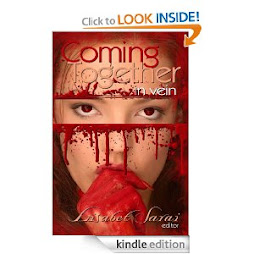

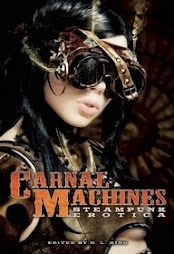

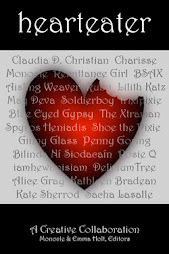
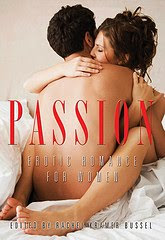
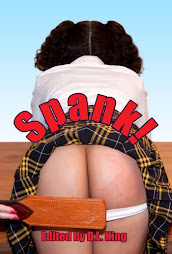



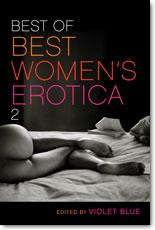

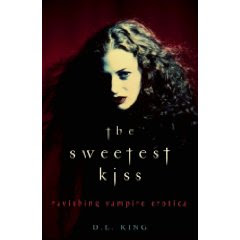


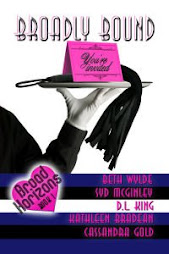.jpg)
